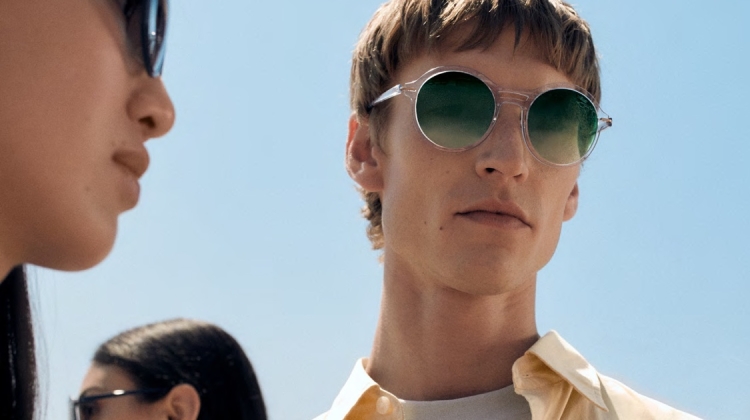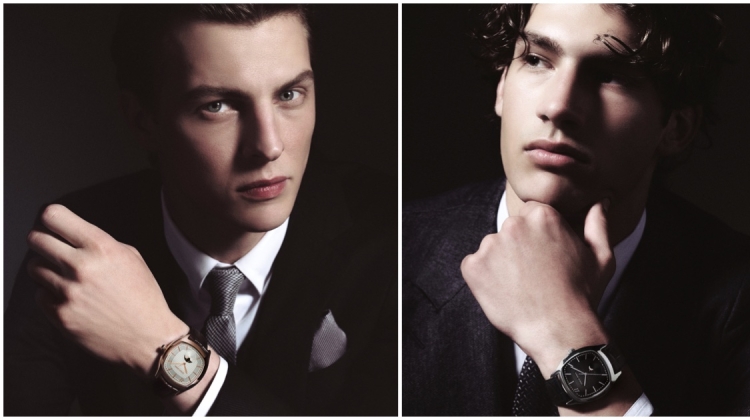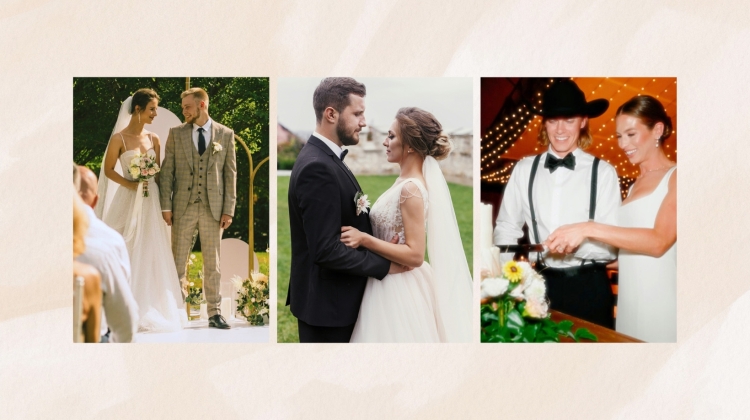
Neckties have held an enduring place in men’s fashion, with each type of tie reflecting a unique personality and purpose. From the timeless appeal of the classic silk tie to the versatile knit options embraced by today’s minimalists, these accessories have evolved alongside shifts in style and social settings.
Types of Ties
Understanding these tie types and how to wear them can elevate your sartorial game, whether preparing for a job interview, attending a formal event, or simply looking to make a fashion statement.
Four-in-Hand Necktie
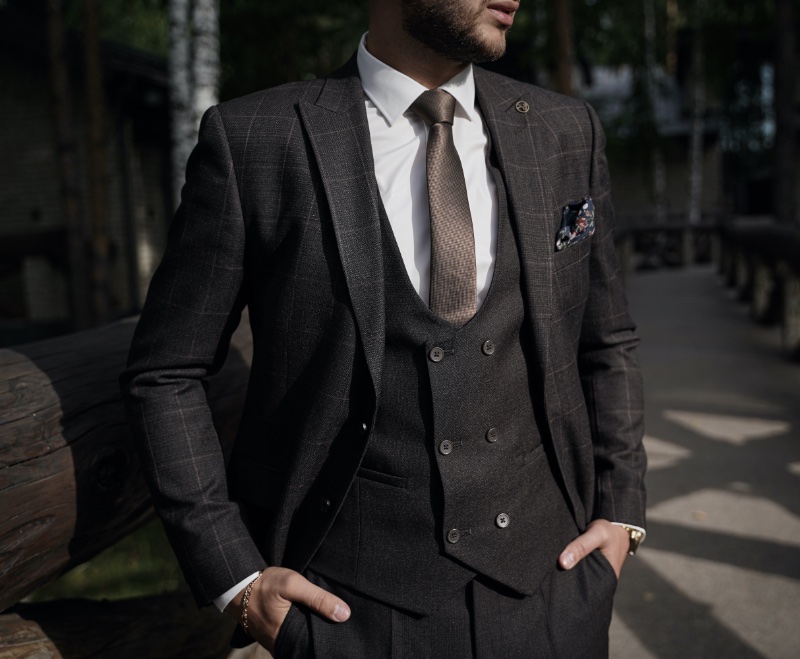
The four-in-hand necktie, often celebrated as the most well-known of all tie types, anchors the cornerstone of traditional office style. Its suitability for various formal events makes it a go-to accessory.
Its distinct charm rests on the unlimited possibilities for personal expression. Widths, colors, patterns, and materials vary, encouraging an individualistic approach to style.
Knotting this tie becomes an art form, offering another dimension of personal flair. While the classic Windsor knot remains a timeless favorite, it serves as a springboard into a world rich with intricate knots.
Seven-Fold Tie
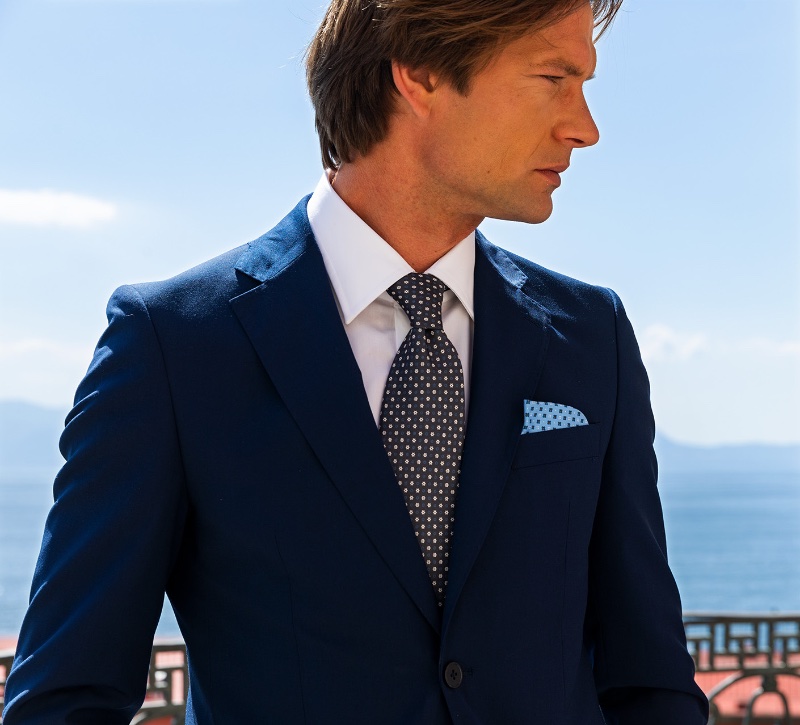
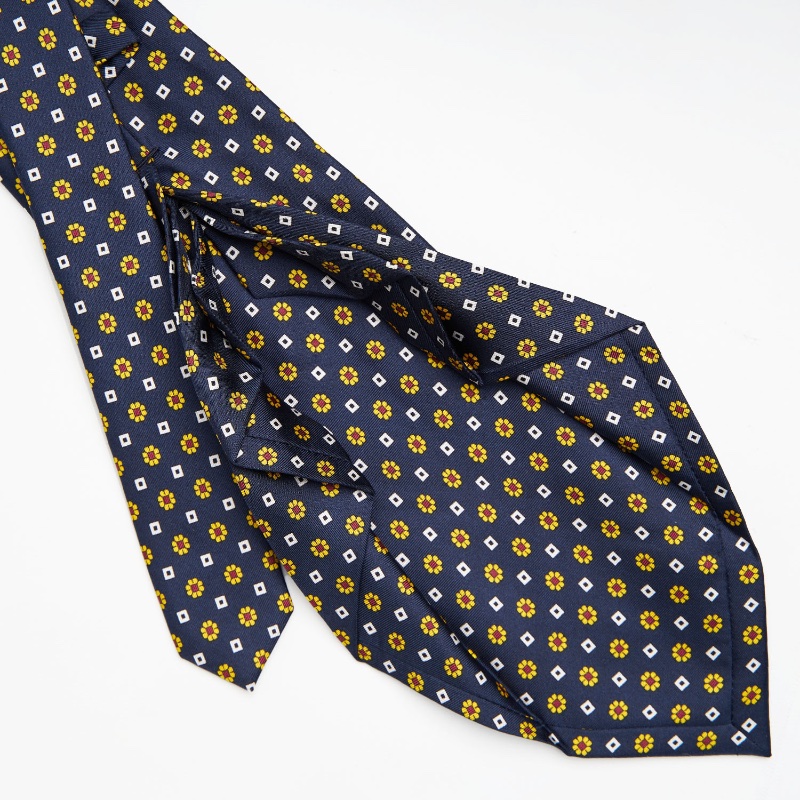
As a distinguished cousin of the Four-in-Hand, the seven-fold tie makes a compelling statement about men’s accessories. The very name of this tie type tells a story of craftsmanship. Meticulously folding each tie seven times sets this style apart.
The canvas for this tie is a full square yard of silk. An impressive feature of the seven-fold tie is the absence of lining. This distinct construction lends the tie a substantial feel and allows for the creation of a striking knot with little exertion.
Given the opulent silk material and the careful attention to detail during construction, these ties usually come with a higher price tag. This inherent luxury positions them as a favorite choice for those special occasions where making an impression is paramount.
Skinny Tie

A notable variation of the four-in-hand necktie, the skinny necktie, infuses vintage charm into men’s fashion. This tie style, initially capturing hearts in the 1950s and 1960s, is almost synonymous with cultural icons of the era, such as The Beatles, who frequently showcased them.
Ideal for slim and skinny-fit tailoring, the skinny necktie emphasizes the streamlined silhouette these styles create. When paired with the right elements, the skinny tie can shape a look that balances perfectly on the tightrope of stylish and edgy.
Bow Tie
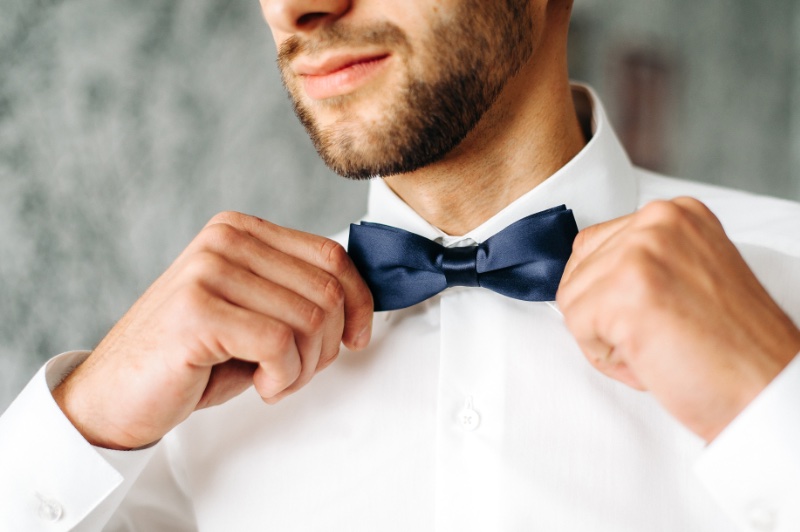
Opting for a bow tie presents a spirited diversion from the conventional necktie. Granting a dash of sophistication upon any outfit, bow ties are quintessential for genuinely formal events, earning their place in every gentleman’s accessory collection.
Bow ties are currently enjoying a wave of popularity in the South, adding an exclusive charm to the local fashion scene. The ideal companion to a seersucker suit, a bow tie, completes this ultimate Southern ensemble.
Their versatility extends beyond regional trends and grand events. From balls and cocktail parties to the daily rhythm of office wear, a bow tie infuses any outfit with a unique flair.
Western Bow Tie
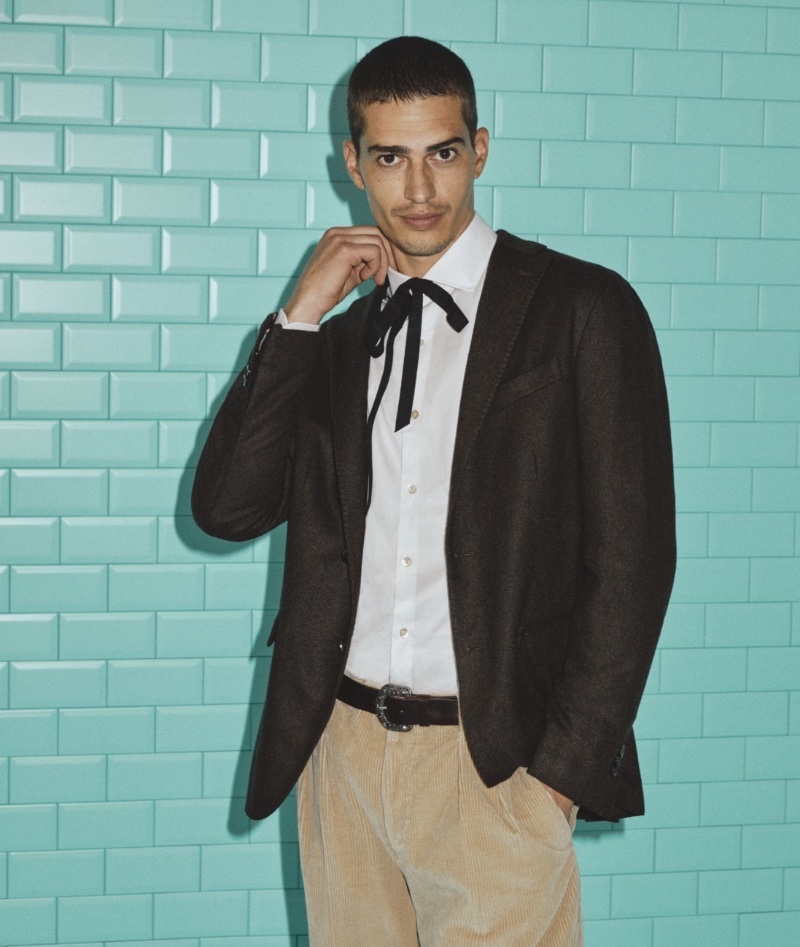
Invoking the timeless appeal of the classic bow tie, the Western bow tie presents itself as a compelling offshoot, deeply rooted in Southern style. It has a storied history that brings to mind unforgettable personalities, such as country music legend Johnny Cash, known for his all-black ensembles and classic ties.
This tie style is trendy in the Southwest, gracing the necks of many at formal gatherings. However, its relaxed charm and regional beginnings may seem somewhat out of place in formal contexts outside its home territory.
Even with this in mind, the Western bow tie embodies a stylish homage to regional fashion trends, showcasing how location can significantly influence men’s fashion.
Bolo Tie
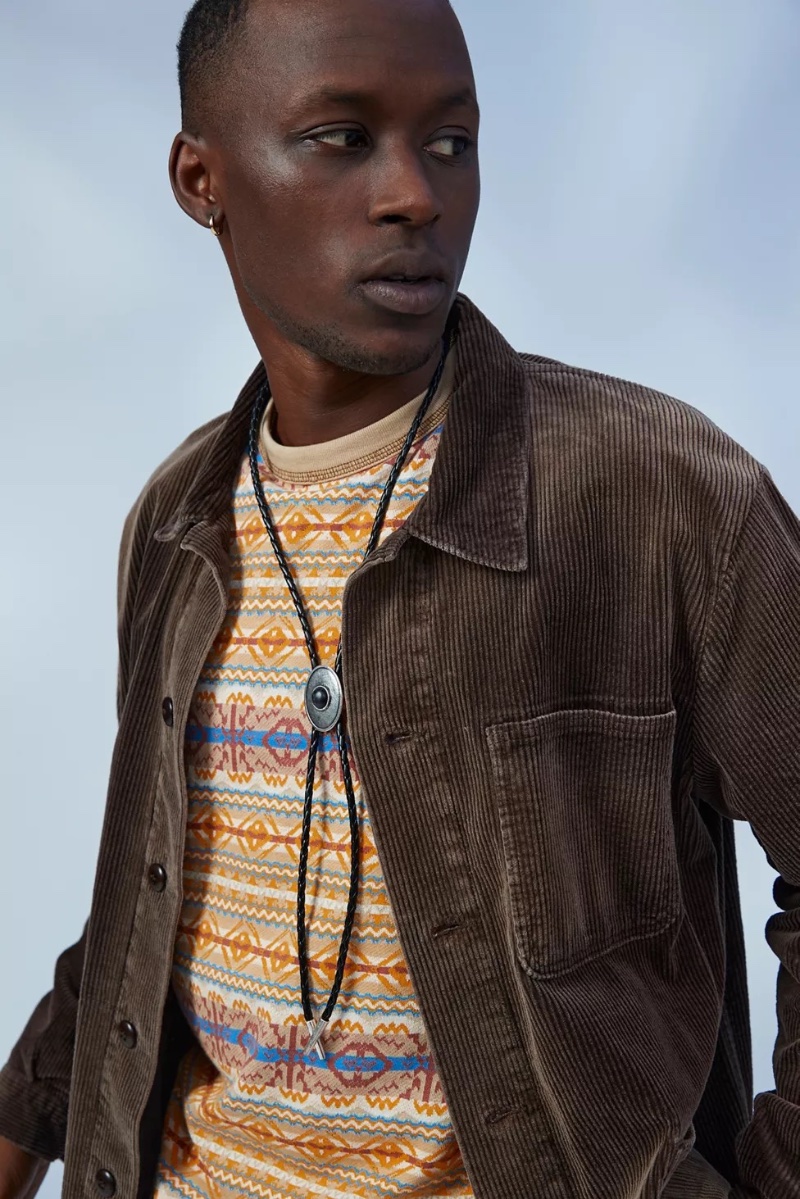
Earning its stripes as a statement piece, the bolo tie deviates from traditional tie designs. Popularized in the 1970s, it’s more akin to a piece of men’s jewelry than a conventional tie.
While its popularity has somewhat modestly regained in recent years, it might have limited suitability for work settings unless you’re based in the Southwest.
Regardless, the unique allure of the bolo tie lies in its ability to infuse personality into your ensemble. Its distinctive design challenges traditional fashion norms and allows the wearer to express their style boldly.
Cravats & Ascots

Ascots and cravats have evolved into near-interchangeable accessories, but each has a unique history and style. The cravat originated in the 17th century, worn as a simple cloth band by Croatian mercenaries and soon embraced by French aristocrats, who turned it into a symbol of refined style.

Later, the ascot emerged in 19th-century England, typically worn at royal events and formal daytime gatherings. Unlike the cravat’s looser, wide-knot style, the ascot is often tucked neatly into the shirt, secured with a pin or tie clip, adding an extra touch of elegance.
While both bring sophistication to an outfit, the cravat’s versatility contrasts with the ascot’s distinctly formal flair.
Neckerchief
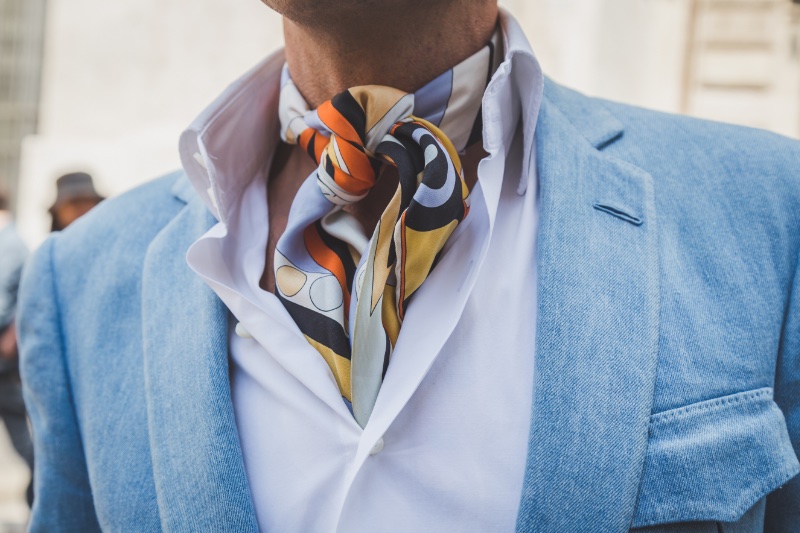
The neckerchief offers a distinctive sartorial choice. This tie type is familiar to many as an integral part of Boy Scout uniforms, marking a signature element of their attire.
However, the neckerchief’s relatively informal nature usually prevents its use in most work settings or formal events unless it’s a specific uniform requirement. Yet, its appeal lies precisely in this casual, off-beat charm.
The neckerchief presents an opportunity to instill everyday wear with an individual touch, thus offering a unique pathway to personal style.
Clip-on Tie
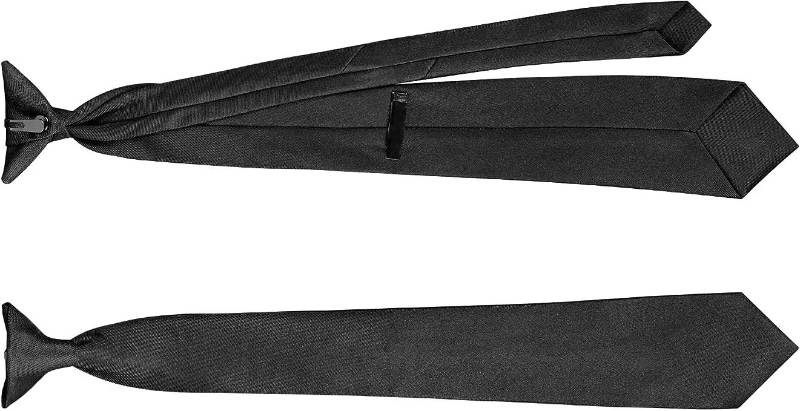
The clip-on tie offers a ready-to-wear option in the world of neck wear. As the name suggests, it’s a pre-tied tie equipped with clips for easy attachment to your collar, thus mimicking the look of a standard tie.
Although it may not always be the primary choice for fashion-forward individuals, the clip-on tie has benefits. The ease and convenience it provides become truly clear on last-minute formal occasions.
The clip-on tie is invaluable if you’re short on time or have never mastered tying a tie. It serves as a reminder that while style is significant, the functional aspects of fashion can sometimes come to the rescue.
Kipper Tie
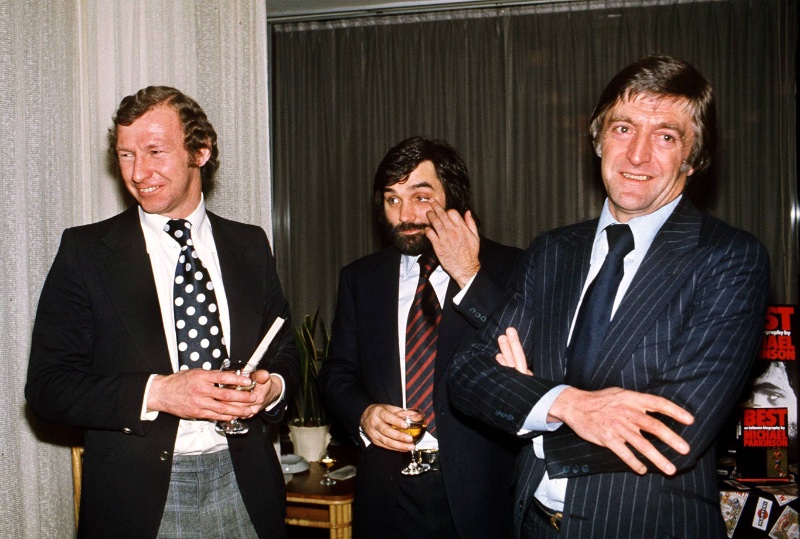
The kipper tie, with its wide blade and frequent showcasing of daring patterns, is a striking declaration. This tie style, which became a sensation in the 1960s and 1970s, hails from the fashion avenues of the United Kingdom, offering it a historical charm.
Integrating a kipper tie into an ensemble introduces a daring dash of personality. The tie’s distinctive aesthetics showcase the transformative power of accessories in fashion, acting as an effective device to revolutionize an outfit.
Knit Tie

Enter the knit tie, a variation that blends tradition with texture, presenting tastefully understated neck wear. The distinguishing characteristic of this tie is its knitted fabric, which sets it apart from its peers by delivering a tactile quality.
This unique texturing breathes life into a conventional outfit, infusing it with a touch of interest that doesn’t overshadow the ensemble’s overall aesthetic. With a balance of sophistication and quirkiness, the knit tie suits a range of contexts.
It shines in semiformal settings and smart-casual occasions, offering a flexible addition to your tie arsenal. The knit tie maintains a consistent charm, whether paired with a sleek suit style or blazer and jeans combination.
Exploring Types of Ties
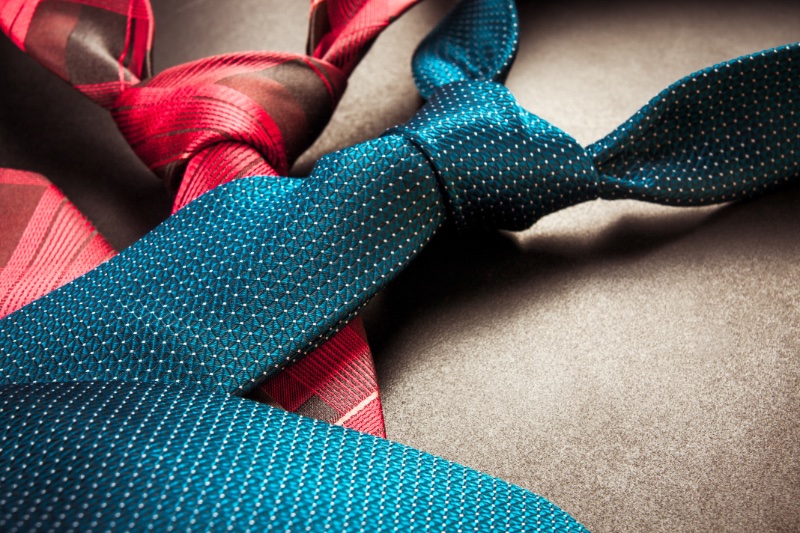
Exploring the different tie types, it’s clear how this simple accessory spans many styles, each reflecting distinct eras, occasions, and identities. Every tie, from the traditional four-in-hand to the bold kipper, is a compelling element within a man’s wardrobe, complementing an outfit and adding an extra dimension of personal expression.
Even in an era where a suit without a tie has become a modern style choice, the right tie remains a powerful way to elevate an outfit for corporate events or more relaxed gatherings, transforming it from ordinary to standout.
Frequently Asked Questions

What types of ties are popular right now?
Currently, the fashion world is seemingly in a tie-trend limbo. The skinny tie has become too slim, the kipper tie too bold, and the perfect one for every occasion seems to be the universally pleasing medium-width tie in solid or vibrant colors.
What ties should a man own?
Every man should own a selection of ties for different occasions. For office wear, work-related functions, or happy hours, it’s good to have a few medium-width ties in solid colors and a few patterned ties.
